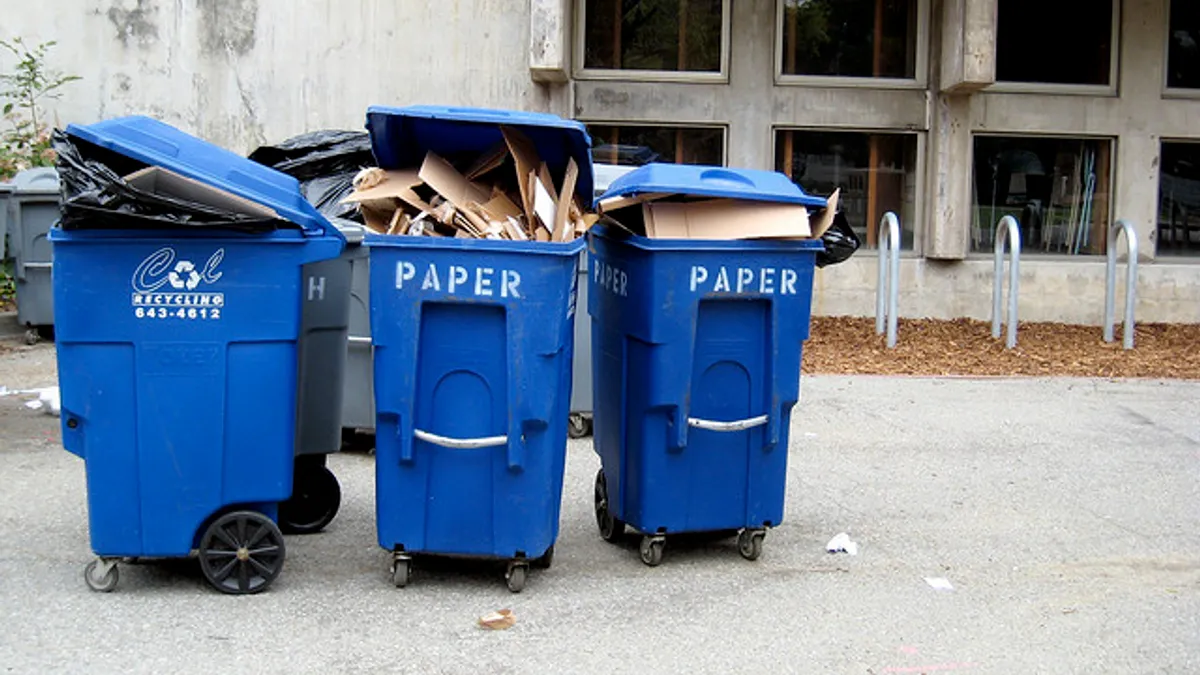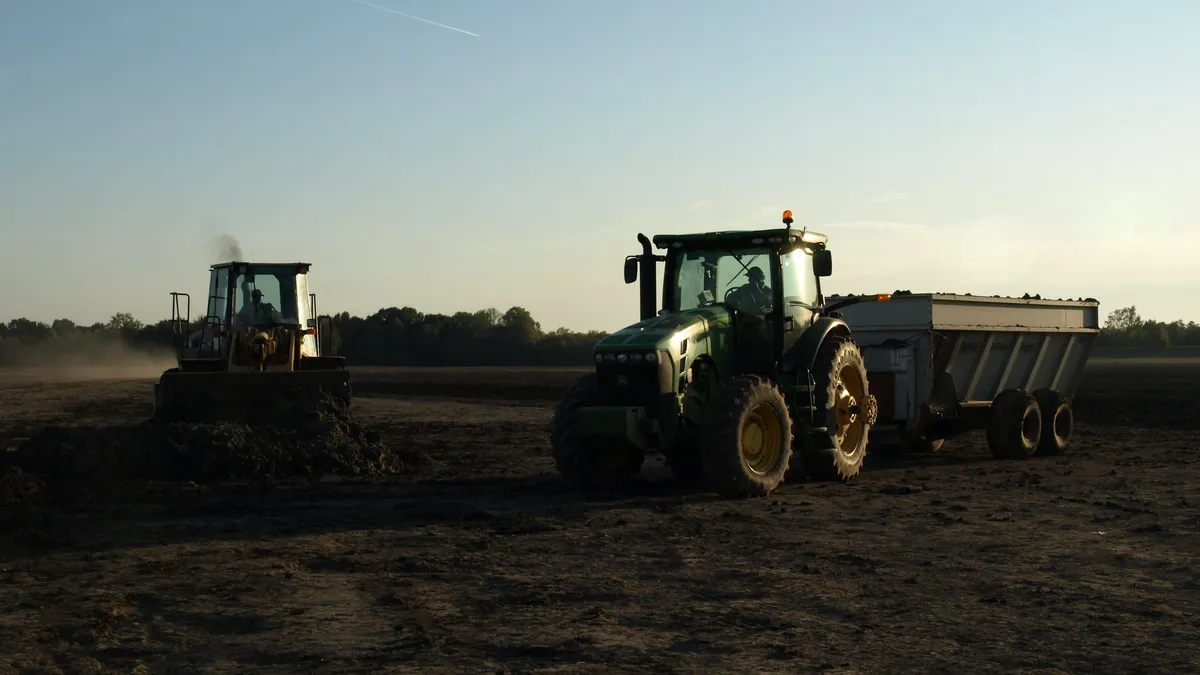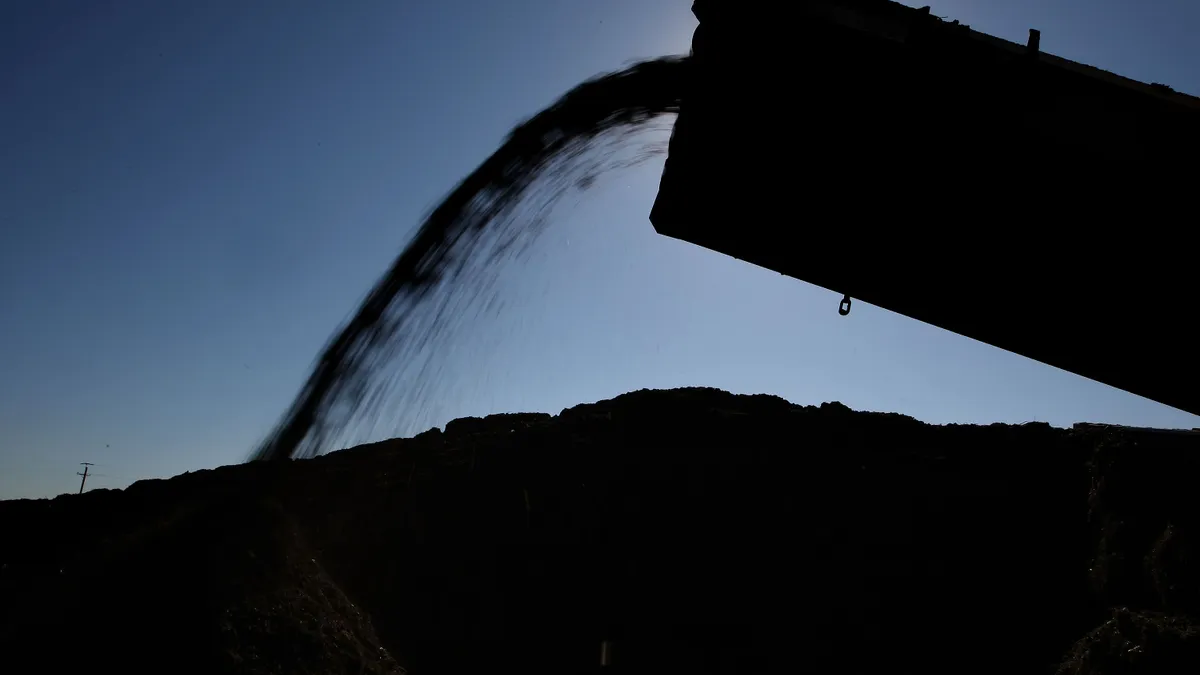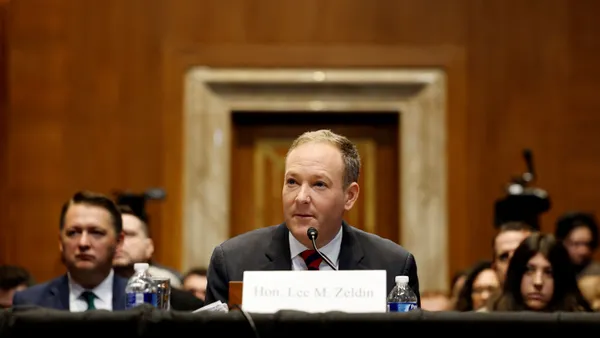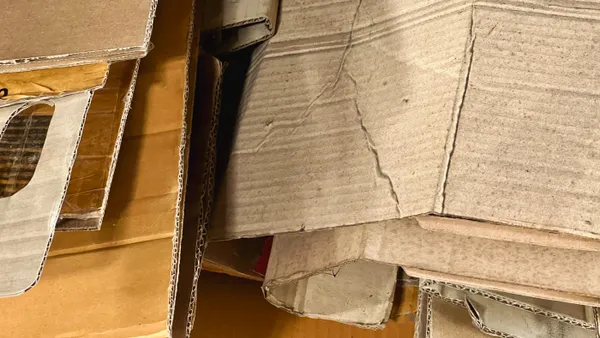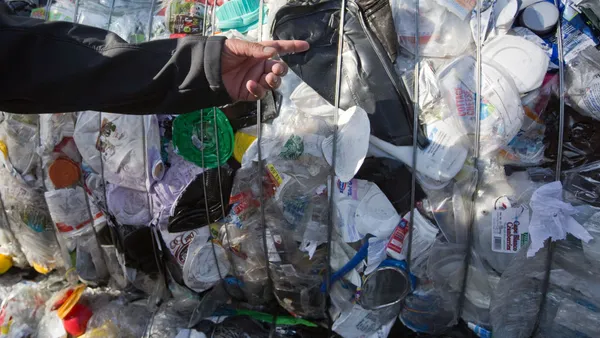Dive Brief:
- Rhode Island has become the first state to adopt Recycle Across America (RAA) standardized labels for recycling bins, which display one simple look and recycling instructions clarifying how and what to recycle.
- RAA labels, adopted by big brands like Sony, Bank of America, Disney, and Whole Foods, as well as thousands of schools nationwide, have been shown to increase recycling and decrease contamination, reports Providence Journal.
- Beginning in July, more than 8,000 free labels will go to state agencies to display on bins in their buildings, and to nearly 40,000 municipalities for their buildings and public properties. All Rhode Island public schools will receive bilingual labels, and private businesses and institutions with recycling programs will also be eligible for free labels.
Dive Insight:
In a 2014 online poll by the Institute of Scrap Recycling Industries (ISRI) and Earth911, 65% of respondents said they aren’t sure which plastics (among other materials) they can toss into their bins. As a result, the confusion leads to costly contamination.
It’s easy to get turned around when trying to decide what to toss in a trash can and what to discard in a recycling bin, even for residents with regular curbside pickup. Adding to the confusion are scenarios such as what to do in public spaces or in communities other than one's own. That’s where the value of a standardized label comes in, and Rhode Island is counting on seeing that value, just as waste management giant Veolia did. Many of Veolia’s Fortune 500 company clients who used the labels soon after achieved 50% or more recycling rates.
"In some cases, [rates were] doubling and the materials that are going into the bin are much cleaner. In fact, in some cases like with NBC, they just had their hauler...say that they’re just amazed at how clean the capture is and that, to us, is a huge bingo," said Mitch Hedlund, founder of Recycle Across America to GreenIsGoodRadio.com.
"...If we can get the standardized labels out throughout society, and it results in more people recycling but most importantly, recycling light, so that there's less...garbage in the recycling bin, that is transformational because now that means that manufacturers will actually want these materials, and they'll be able to buy [them] at a price point that is competitive with virgin materials," said Hedlund.


